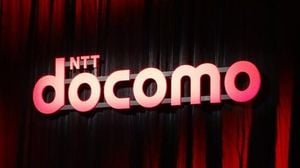The recent panel debate on CNN surrounding Elon Musk's salute during President Donald Trump's inauguration has ignited considerable controversy, reflecting the broader societal concerns about remarks and gestures associated with historical atrocities. The Tesla and SpaceX CEO has faced backlash for what many have interpreted as Nazi-like salutes made during his on-stage appearance at Trump’s inauguration celebration.
Last week, as Musk threw his arm out straight and made what looked like a salute, the incident was caught on video and circulated widely. During the subsequent CNN debate on January 27, 2025, Washington Post columnist Catherine Rampell confronted GOP pundit Scott Jennings, challenging him to replicate Musk's gesture live on air if he believed it was as innocuous as he claimed.
Jennings had come to Musk’s defense during the broadcast, asserting, “This salute trutherism is outrageous.” He interpreted Musk’s actions as merely enthusiastic, aimed at expressing gratitude to the audience. Rampell, who is Jewish, repeatedly pressed Jennings, saying, “Do it right now on TV. If you think it’s normal, if you think it’s a normal way to greet people, do it right now on TV! Why won’t you?”
Despite Rampell’s insistence, Jennings declined to perform the gesture, raising eyebrows about his defense of the controversial figure. This back-and-forth highlighted the tensions surrounding interpretations of gestures and language related to history's darkest chapters.
The CNN debate was sparked not just by the salute, but by Musk's continued engagement with far-right ideologies. Just days following the inauguration, Musk faced additional scrutiny for comments made to Germany’s far-right Alternative for Germany (AfD) party, where he remarked about their national history. Musk reportedly told the party they should not focus too heavily on their “past guilt,” aligning his rhetoric with figures known for downplaying the horrors of Nazism.
Dani Dayan, chairman of the World Holocaust Remembrance Center, responded critically to Musk's statements, asserting on social media, “The remembrance and acknowledgement of the dark past of the country and its people should be central… Failing to do so is… a clear danger to the democratic future of Germany.” Dayan highlighted the importance of confronting history honestly, implying Musk's comments trivialized these serious discussions.
Rampell has been vocal about her disbelief at Musk’s ability to continue to evade serious repercussions for his statements. “I don’t understand why this guy keeps getting the benefit of the doubt,” she exclaimed, addressing the panel. Meanwhile, Jennings defended Musk as having “a long record of supporting the Jewish People,” attempting to paint Musk not only as misunderstood but affirmatively aligned with good intentions.
Despite the heated arguments on CNN, social media users had mixed reactions. Some applauded Jennings for supporting Musk, calling attention to what they perceived as undue outrage. Others, like Congressman Eric Swalwell, condemned Jennings' stance, saying, “(Catherine Rampell) completely destroys (Scott Jennings). On Holocaust Remembrance Day, Scott defends the Hitler salute. Doesn’t end well for him.”
Following the inauguration, Musk attempted to clarify his intentions, putting forth his gestures as expressions of goodwill. “My heart goes out to you,” Musk said, seemingly defining his actions as benign. Yet, the fact remains: his attempts at humor following the incident—posting 'Nazi jokes' on X, the platform formerly known as Twitter—only exacerbated the situation.
When confronted by accusations of antisemitism, Musk dismissed them as “dirty tricks,” attempting to deflect the severity of the situation. His flippant attitude toward historical sensitivity continues to raise the ire of critics who fear his platform promotes dangerous ideas.
The CNN segment and Musk’s controversial statements shed light on a persistent societal struggle with the memory of atrocities committed during World War II. Parallels drawn between present behaviors and past ideologies lead to uncomfortable conversations about accountability and historical awareness.
Rampell concluded her argument with palpable frustration, challenging Jennings to reconsider the weight of their discussion. “I can’t believe you are defending this. This is the biggest conspiracy theory–,” but Jennings quickly retorted, insisting he was countering what he termed “salute trutherism.” The clash encapsulated the conflict between differing worldviews over responsibility and memory—a topic likely to endure as public dialogues continue.



